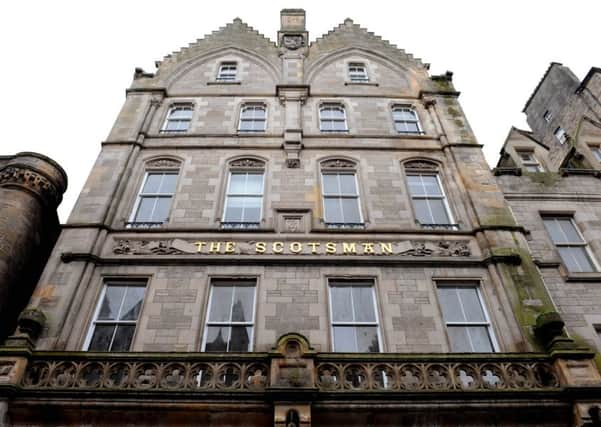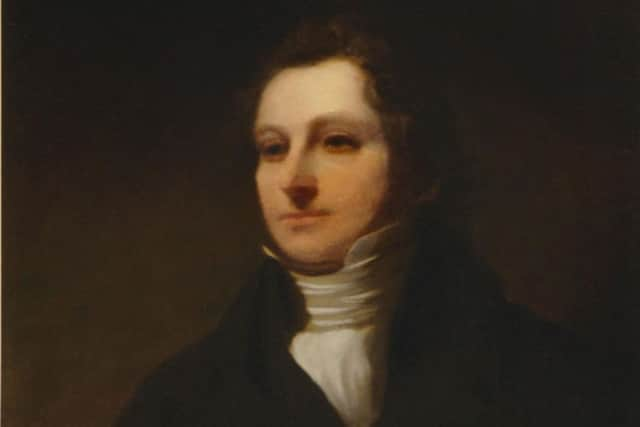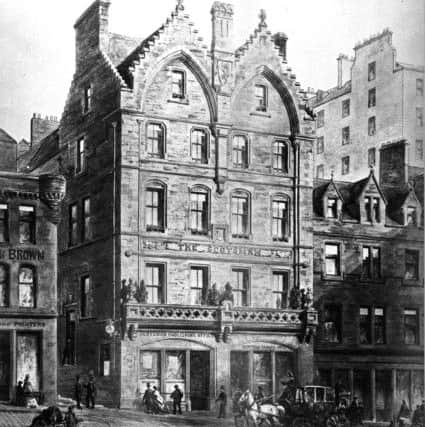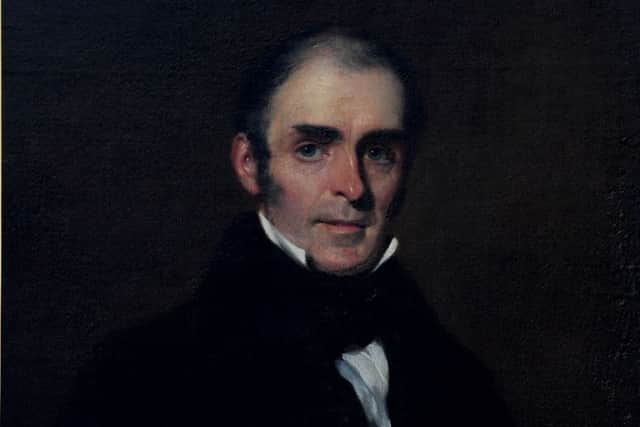The Scotsman at 200: The 1816 prospectus in full


Long observation has impressed the Projectors of this Work with a belief, that nothing of a very spirited or liberal nature can find its way through the Edinburgh daily or weekly press; that many political matters and transactions in Scotland are thus never generally known; and that the Conductors of the Edinburgh Prints act, editorially, as if they dreaded nothing so much as the idea of being thought independent.
How far this is correct, and whether it proceeds from an erroneous calculation of interest, or the fear of incurring ridicule, need not be determined. The more material fact is not to be denied, that, contrasted with the London, or many even of the Provincial Newspapers, those of Edinburgh are cold, unvaried, and spiritless.
Advertisement
Hide AdAdvertisement
Hide AdIf the Projectors could have persuaded themselves that the existing Prints reflected truly and fully the Spirit and Manners of the Times, and represented all classes in the Metropolis of Scotland, by exhibiting their various feelings and opinions, THE SCOTSMAN would never have been offered to the public. But although it was thus to remedy an evil, tending in its consequences to extinguish Public Spirit, that the present publication was thought of; the Conductors do not mean to confine their Journal to the discussion of politics. They shall endeavour also, by making it a reflector of morals and literature, to multiply the sources of rational amusement, without neglecting any proper opportunities for affording instruction.


No promise, however, is given to gratify fastidiousness of taste; no pretensions are made to fine writing or profound speculation; but the Conductors pledge themselves for impartiality, firmness, and independence.
As the name implies, Scottish affairs and interests will meet with peculiar attention; but no principle of exclusion will be allowed to operate; and the pages of THE SCOTSMAN will be open to all who shall, without personal abuse or libellous matter, bring forward a case which, politically, morally, or religiously, is deserving of general consideration.
News, Foreign and Domestic, which bear upon any great interests or questions, or which are in themselves extraordinary or surprising, will be faithfully given, and occasionally commented on. Discoveries in Science, Inventions and Improvements in the Arts, will be carefully communicated. Literary Works of merit will be introduced to the notice of the readers, with specimens and criticisms. Manners and Amusements, particularly those of the Theatre, will receive attention. And, in short, by uniting liberal discussion with judicious notices of what is passing in the Political, Literary, Fashionable, and Busy World, the Conductors of THE SCOTSMAN will endeavour to “ hold the mirror up to nature,” and exhibit, as much as possible,” the very shape and pressure of the times.”
For accomplishing such a varied and difficult task, there are obviously many facilities in Edinburgh, which are not to be found in any other part of Scotland; and though no similar undertaking has been attempted hitherto on this side of the Tweed, the Editor and his friends are not discouraged, since it is pretty manifest that the great requisites for the task are only good sense, courage, and industry.


The Editor and his immediate supporters are lovers of their country.—They are attached to its manners, its scenery, and its literature; but they are still more strongly attached to that regulated freedom, which they enjoy as Scotsmen through their birthright as Britons. This constitutional liberty they wish to preserve equally from the encroachments of power, and the distractions of anarchy.—At present, they conceive there are dangers to be apprehended from both ; for an unfortunate estrangement, they fear, has taken place between the people and those who hold office over them. This renders the task of every Editor more delicate and important; and it seems also to call for explanation of the Political Principles on which any intended work is to be conducted.
The Projectors of THE SCOTSMAN, then, hold with Mr Burke, that “although government is certainly an institution of divine authority, yet its forms, and the persons who administer it, all originate from the people ;”—that “ no power is given for the sake of the holder, but that King, Lords, and Judges, are trustees for the people, as well as the commons ;”—that “ a vigilant and jealous eye over executory and judiciary magistracy, an anxious care of public money, an openness approaching towards facility to public complaint, are the characteristics of a House of Commons;”— that “ public duty demands and requires, that what is right should not only be made known, but be made prevalent ; that what is evil should not only be detected, but defeated.”
With a living Author, whose genius and knowledge of political truths they conceive to be greater still than those of Burke, they also hold, that “ there is nothing else, but a free government, by which men can be secured from those arbitrary invasions of their persons and properties,—those cruel persecutions, oppressive imprisonments, and lawless exactions, which no laws can prevent an absolute monarch from regarding as part of his prerogative;—and, above all, from those provincial exactions and oppressions, and those universal insults, and contumelies, and indigniteis, by which the inferior minions of power spread misery and degradation among the whole mass of every people which has no political independence.” With the same Author they are of opinion, that “ the dissensions of a free people are the preventives, not the indications of radical disorder ; and the noises which make the weak-hearted tremble, are but the natural murmurs of those mighty and mingling currents of public opinion, which are destined to fertilize and unite the country, and can never become dangerous till an attempt is made to dam them up, or to disturb their level.”
Advertisement
Hide AdAdvertisement
Hide AdThis creed of the Projectors will not be considered less sound, because it is expressed in the language of departed and living genius. Authority is thus superadded to reason ; and when the highest species of both are united, he must be very sceptical, or possessed of a most perverse intellect, who can resist their force. In the present instance, the Projectors are only anxious that their faith may not be discountenanced by their practice. Their first desire is to be honest, the second to be useful. The fulfilment of both depends less perhaps on themselves than on the Public. Virtues, like manufactures, thrive only where there is a demand for them.


When an undertaking is formed, and to be supported on public grounds, gain should not, and cannot be the object of the Projectors ; but those concerned here are at the same time desirous to avoid loss ; and they must see a prospect of being secured against it, in a number of Subscribers, before they throw off their first paper. Fame can hardly be looked for from their labours ; and prudence imposes limits on the degree in which private fortune ought to be injured for the sake of public good. The Public, they conceive, are deeply interested in supporting a publication, which is to be, not in profession only, but in reality, a servant of their own. To the honest, the liberal and the well-meaning, THE SCOTSMAN will be faithful in his services. It remains, therefore, with them to shew whether they can estimate the value of what is to be done for them. Encouragement withheld, like hope deferred, withers the powers that deserve it. And, without a figure, the call for subscriptions to this work will afford one test of the public temper and feeling. It will in some degree fix the amount of legitimate patriotism, which is to be found in the country.
That it may be great, is desired by the Projectors, more anxiously for the country’s sake than their own. Conscious of the purity of their motives, and the sincerity of their professions, they are neither ashamed nor afraid of making a frank appeal; and their anticipations certainly are, that it will not be made in vain. n